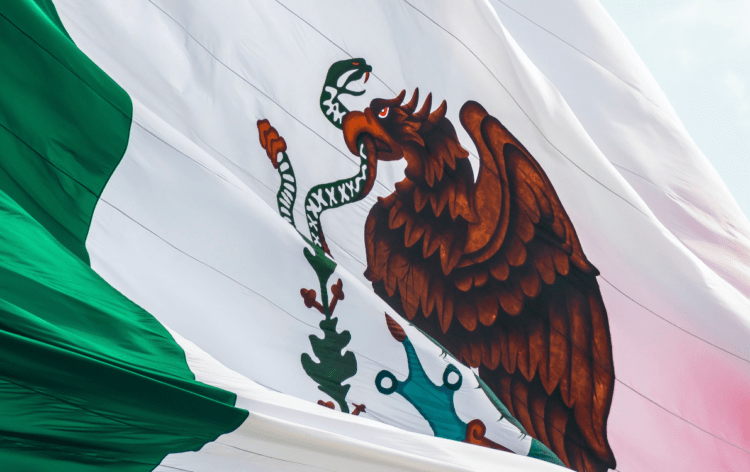Navigating the Challenges of Mexico’s Commodity Industry: Corruption, Regulations, and Volatility

Mexico is blessed with abundant natural resources, including oil, gas, minerals, and agricultural products, which provide a strong foundation for its commodity trading industry. The Mexican commodity trading sector has grown rapidly over the years, driven by increased demand from domestic and international markets. The country’s strategic location and extensive transportation infrastructure make it a major hub for the trading of commodities, particularly those destined for the United States. The sector encounters various obstacles, such as issues with regulations, uncertainty in the political landscape, and apprehensions regarding security.
This article explores the current state of commodity trading in Mexico, its key players, major commodities, and the opportunities and challenges facing the industry.
Most Traded Commodities in Mexico
One of the dominant economies in Latin America is Mexico, and it holds a significant position in the worldwide commodity market. Mexico’s abundance of natural resources has made it a favorable location for foreign investors. The three most traded commodities in Mexico are crude oil, silver, and coffee. In this essay, we will explore why these commodities are so popular in Mexico, as well as the main trends and features of the country’s commodity market.
Crude oil is by far the most important commodity in Mexico. The country is the sixth-largest oil producer in the world, and oil exports account for a significant portion of the country’s GDP. Mexico’s oil industry is dominated by the state-owned oil company, Pemex.
The company holds the accountability for exploring, extracting, purifying, and dispersing crude oil and additional derivatives of petroleum. The Mexican government has recently made efforts to open up the oil industry to private investment, which has led to an increase in foreign investment in the sector.
Silver is the second most traded commodity in Mexico. The country is the world’s largest producer of silver, accounting for nearly a quarter of global production. Mexico’s silver mines are located primarily in the states of Zacatecas, Durango, Chihuahua, and San Luis Potosi. The metal is used primarily in the manufacturing of electronics, jewellery, and silverware. The price of silver is highly volatile and is influenced by a range of factors, including global economic conditions, currency fluctuations, and supply and demand trends.
Coffee is the third most traded commodity in Mexico. The country is one of the world’s largest producers of coffee, with most of its production coming from the southern states of Chiapas, Veracruz, and Puebla. The coffee industry in Mexico is dominated by small-scale farmers, who produce high-quality arabica beans. The coffee market in Mexico is highly competitive, with both domestic and international buyers vying for the best beans. The value of coffee is susceptible to changes due to variations in supply and demand, climatic circumstances, and global economic patterns.
One of the main trends in the Mexican commodity market is the increasing focus on sustainable and ethical sourcing practices. Many international buyers of Mexican commodities, particularly coffee and silver, are now demanding that their suppliers adhere to strict social and environmental standards.
Another trend in the Mexican commodity market is the growing role of private investment in the oil industry. The Mexican government has recently opened up the oil sector to private investment, which has led to an influx of foreign capital. This has been accompanied by efforts to modernize and streamline the operations of Pemex, which has traditionally been plagued by inefficiency and corruption.
In conclusion, Mexico is a major player in the global commodity market, with its three most traded commodities being crude oil, silver, and coffee. The country’s commodity market is characterized by a range of trends, including a growing emphasis on sustainability and responsible sourcing practices, as well as the increasing role of private investment in the oil sector. As Mexico continues to develop its commodity industry, it will likely remain an important player in the global market for years to come.
Issues That Need to Be Solved for Commodity Market in Mexico
While Mexico’s commodity market has many strengths, there are also several challenges that it faces. Some of the main problems and issues for Mexico’s commodity market include corruption, regulatory challenges, and price volatility.
Corruption has long been a major issue in the Mexican commodity market, particularly in the oil sector. The state-owned oil company, Pemex, has been plagued by corruption and inefficiency for many years, leading to a lack of investment and declining production. To combat this problem, the Mexican government has made efforts to increase transparency and accountability in the oil industry, as well as opening up the sector to private investment.
Regulatory challenges are also a major issue in the Mexican commodity market. The country’s regulatory environment is often seen as cumbersome and bureaucratic, making it difficult for businesses to operate efficiently. To address this problem, the Mexican government has taken steps to simplify regulations and improve the business environment. However, more work needs to be done in this area to encourage investment and growth in the commodity sector.
Price volatility is another major issue for the Mexican commodity market, particularly in the case of silver and coffee. Prices for these commodities can be highly volatile, which can make it difficult for producers to plan for the future. To address this issue, the Mexican government has encouraged the use of hedging strategies to help manage price risk.
Overall, while there are certainly challenges facing the Mexican commodity market, there are also many opportunities for growth and development. By addressing issues such as corruption, regulatory challenges, and price volatility, the Mexican government can help to create a more stable and attractive environment for investment in the commodity sector.


























Comments (0 comment(s))